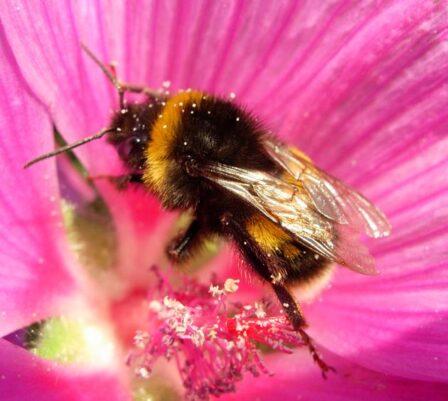“Fight to Save Bees” Waged in California Courtrooms
by Suzanne Potter
Save the bees! That’s the battle cry in two ongoing court cases in California where beekeepers and environmental groups are fighting regulators over the use of pesticides they contend harm bees and crops.
On Tuesday, on behalf of the groups, the law firm Earthjustice asked a federal judge in San Francisco to make the Environmental Protection Agency take a second look at a pesticide called sulfoxaflor. Lead attorney Greg Loarie says this is the first case beekeepers have brought against the agency for failing to protect honeybees from toxic pesticides.
“It’s gotten to the point where beekeepers are losing so many bees each year that they simply can’t stay in business,” says Loarie. “At the rate we’re going, we’re really on a short path to agricultural disaster.”
Last week, Earthjustice asked a state court in Alameda to force the California Department of Pesticide Regulation to stop approving the use of a class of pesticides called neonicotinoids, until the department finishes a multi-year review of the impacts on honeybees.
Groups opposed to and in favor of pesticide use both cite studies they say prove their respective points. Pesticide manufacturers blame the bee deaths on a combination of causes, including disease and predators. But no matter what the cause, Paul Towers, organizing and media director of the Pesticide Action Network, says the stakes are high.
“We know bees are responsible for one in three bites of food we eat,” he says. “We need to take every step we can to ensure their continued safety and protection.”
California’s state review of neonicotinoids began in 2009, and Towers says that’s long enough to take some “meaningful action” to protect bees. The bees play a beneficial role in many farm crops, but at greatest risk in California is the $3 billion almond crop, which is entirely dependent on bees for pollination.
Category: Health & Fitness








